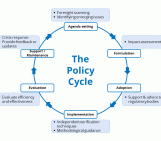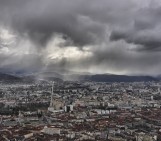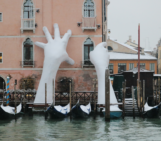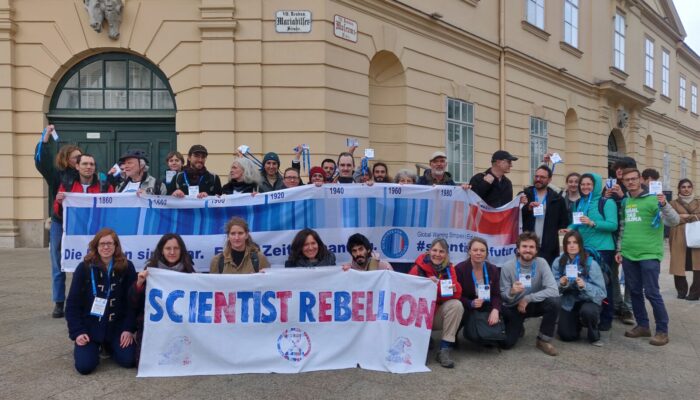
In this blog post I am expanding on the blog post about the third EGU Climate Great Debate and its survey results on what you thought we can do as scientists. After conducting an interview with Maien Sachisthal, an active member of Scientist Rebellion, I reflected on the Great Debate and scientists within society, sharing insights on the Scientist Rebellion and Scientists 4 Future protest events that took place during the General Assembly in 2024. Make sure to check out the list of resources I curated at the end of the article to find publications on ‘activism success’ and ‘constructive hope’, local action groups and more!
Interviewing a rebellious scientist after the Climate Great Debate
Hey Maien, good that I just bumped into you! We actually first met on the train on the way to EGU, but now, we’ve just come out of the EGU Great Debate about the Anthropocene. And because I got to know that you are actively a scientist activist with Scientist Rebellion, I actually was really curious to hear what you thought about that debate.
I thought the debate started off well. There were some really good points made. Such as that everyone should find their way in speaking out, and finding their niche to be impactful. But as the debate went on, I felt like the panelists didn’t really answer the specific questions anymore. They stayed within their comfort zone, and didn’t answer what the audience questions actually wanted to hear (…): “How can we really use all the power we have as scientists and how we can do this best?”
On that note, I wondered what is a point that you most would have loved one of the speakers to address, or say more clearly, to this particular audience at EGU?
I think to be a bit more reflective of the fact that what has been done so far doesn’t seem to be enough. And maybe think about the position they are in, and maybe they should leave their comfort zone, too – I mean, Michael Mann was even asked about this specifically. But he seems to, for now, think that staying in his position is good enough. I wonder if that’s true.
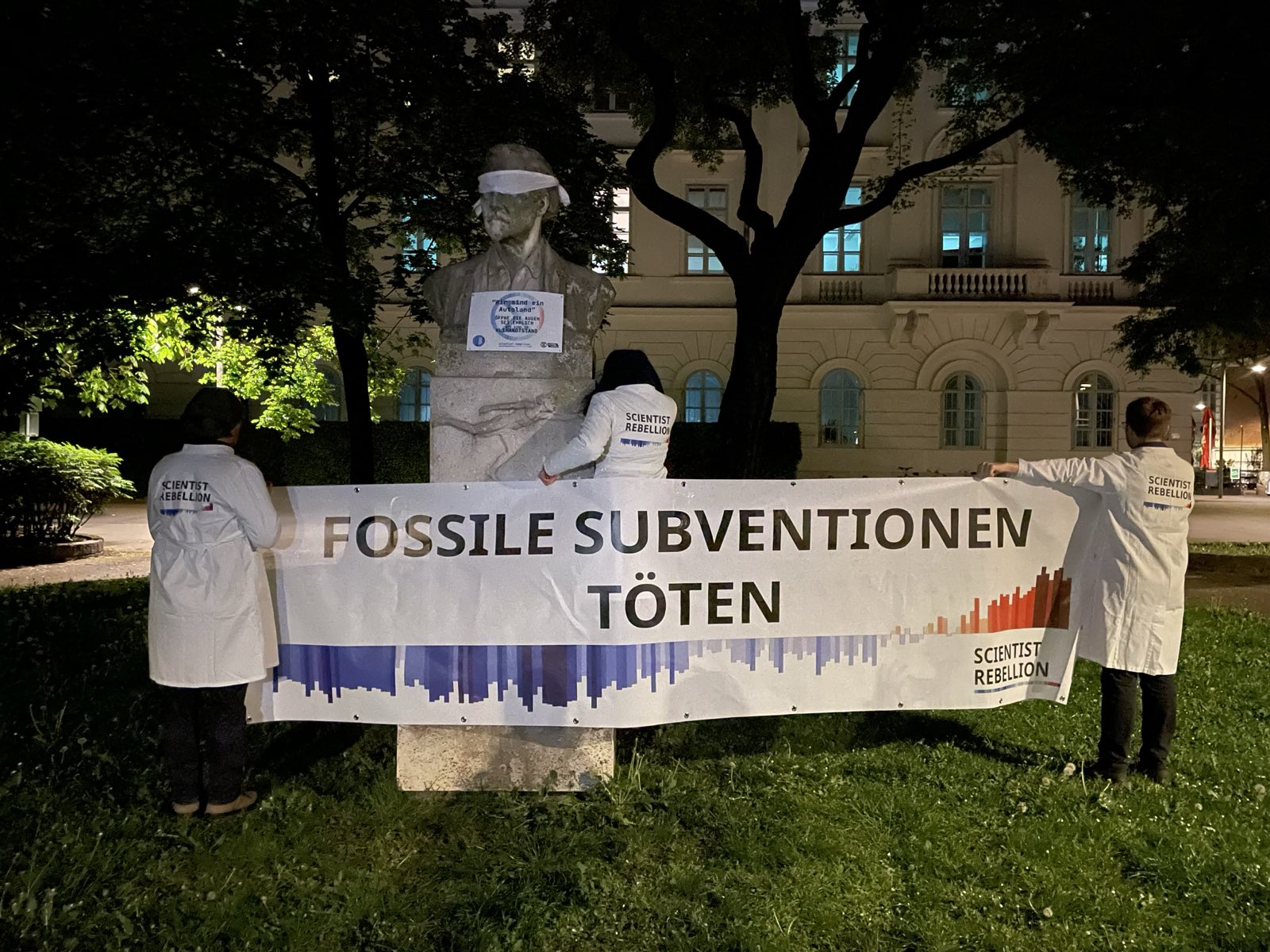
Members of SR in Vienna on 17 April 2024 when blindfolding historic figures to raise awareness about sometimes historic modern-day perception. Photo credit: Maien Sachisthal.
I think the whole audience was noticing that, too. (This could specifically refer to when Michael Mann was addressed during the Great Debate about how sufficient his actions are as “most famous climate professor”, he became noticeably defensive.)
They also mentioned that it’s up to Early Career scientists and young people to stand up. And that’s a very common phrase that we also hear in society: that it’s the new generations that will [have to] save us. I mean, I agree that they or we should have a seat at the table. But we are not yet in the power positions. We might be in 10 to 20 years. So I think it is actually the people that are at the levels of power that should be the ones that step out of their comfort zones and not put everything on us.
I think the point with young people’s representation was also raised, because Carlos actually specifically mentioned the need to see young people in power. So I wonder what action you personally think we all could do more, right now? I am aware that this is a difficult one.
And I’m actually a psychologist, so I think about behaviour a lot. And what is really, really important is that we think about that what we do has a really big impact on our direct environment, the people around us. So, once we start to act differently, others might move with us.
I was engaged in civil disobedience before, and I continue to do so. But I can also only do this because I’m in a very privileged position, right? I have a stable enough job. I live in a democracy. So, I think it’s really important that people who have this kind of privilege become aware of that. I’m not targeted as much on police violence as visual minorities, for example. And for me right now at least, civil disobedience is, I think, one of the most powerful things we as high-SES [high social economic status], white people in democracies can do.
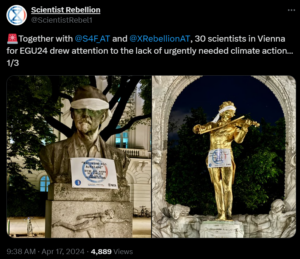
A tweet by Scientist rebellion revealing the Wednesday protest action in Vienna on 17 April 2024. Image credit: Scientist Rebellion via X.
The panel talked about staying in or leaving the comfort zone a lot. The privilege you talked about might exactly be that comfort zone that many of us likely aren’t even aware of yet. Scientists might not feel privileged within academia, yet many of us enjoy a still high level of societal privilege. So I appreciate that you say “I can take that space right now for the people who can’t.”
Absolutely. And I think maybe that’s also a really good note to put this one on. Become aware of your privilege, too, instead of pointing to other politicians and scientists on ‘the wrong side’. I think that also came out in the debate, that on one side, Carlos said that a lot is lost already and then on the other side you have Michael Mann who advocated staying optimistic. I don’t know if that’s still the right message. For us maybe it is still possible to be optimistic because we still live a very comfortable life, and maybe high-SES [high social economic status] countries maybe have enough money to adapt to the effects of climate change. But in other parts of the world there is none to little of this. So it’s again a very big point of privilege to be able to say “We should stay hopeful until the last little point of hope is lost, right?”
The point you raise about hope is interesting. While we need hope to continue our work within the climate crisis, as Michael Mann also stated, there is also a risk in using optimism to stay in a blind spot and ignore the action needed.
Exactly. I mean in psychology there are different types of hope, and the hope we need here is constructive hope (Maartensson & Loi 2021) where we just want to fight for every tiny degree that we can save basically. And this is what can be fueled by collective action, right? If I notice that other people worry as much as me and want to take as much action as me, I can get some sense of hope at least.
Thank you so much for this conversation. Maien Sachisthal is a researcher of psychology at the University of Amsterdam.

Scientists 4 Future at the Friday 4 Future protest in Vienna on 19 April 2024 (left) and EGU attending scientists raising their EGU name badges (right). Photo credit: Joppe Massant.
Climate protests in Vienna
Following the interview with Maien it became clear that these researchers felt still more action than these words were needed. So, not surprisingly, Wednesday evening, after the Great Debate of the #EGU24, 30 members of the Scientist Rebellion and Scientists 4 Future movements blindfolded historic figures in Vienna. Also on Friday, scientists attending EGU24 participated in the weekly Fridays for Future protests, gathering with other protestors in the Museumsquartier, waving their EGU name tags. Joppe Massant, computer scientist at the Royal Belgian Institute of Natural Science joined the protest and states:
“Next to informing the public about the climate and biodiversity crisis, we as scientists also feel a moral obligation to demand actions from our policy makers. A brave young scientist at the conference made a call to join the protest in Vienna, where we were joined by Scientist Rebellion and Scientists 4 Future among many other environmental movements.”
What could you as a scientist do? Here’s what you suggested!
In my last blog post about the EGU great climate debate, a link to a mentimeter survey encouraged you to leave your thoughts on your privilege as scientists, how much action is enough and what still can be done. While it is likely the responses came from people with a high level of engagement already, they also left space for more physical outreach within and outside of the scientific community.
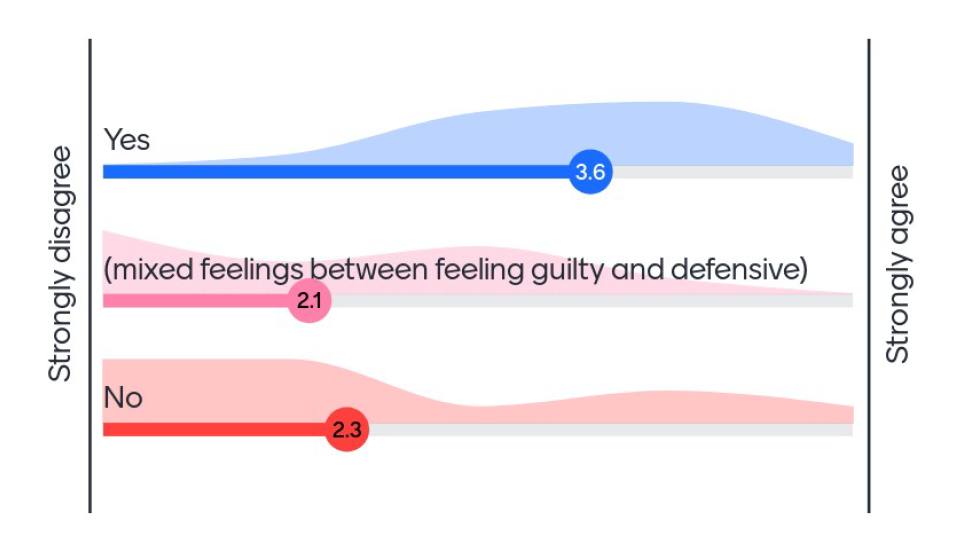
Question 2 of the mentimeter survey (https://www.menti.com/alueqp3yqqbi) linked into the blog post about the EGU great climate debate: “If you think about your current privilege to act and actual level of action – do you think, you use your personal skills enough (for the planet)?” Image credit: Maria Scheel, Mentimeter.
When asked “If you could do 1% more in your personal skill set and environment, what would you do (for the planet)?”, people responded with specific suggestions, which included (in order of number of mentions):
- change the academic system from prioritizing needed research, communication, organization among scientists and how we engage with student debates and actions
- start and expand on science policy and public advocacy
- “mobilize more climate scientists to leave their offices and join the climate movement in the streets”
- “call out bad actors, hold big oil accountable, support climate lawsuits”
Some more specific and great ideas include:
- Working together with a youth group
- “Having a booth of climate scientists when the new European MEPs have their first day in Parliament to let them pledge to take the climate crisis into account”
- “Kicking out fossil companies from universities and research institutions”
As I discussed in the former EGU Great Debate blog post, I think that every single person (and scientist) can make up their mind to see what is within their power and find that place where each of us can make a change, no matter how small. After all the good thing is: we are in this together! If you feel ready to continue and take action I’ve also included some publications on the effects of scientists visually rebelling, links to find your local group of action and further blog posts on the spectrum from policy to action – and your place in it!
Resources, ideas and further reading:
Some scientific studies:
- This year, a study by Brehm & Gruhl 2024 has found, that students perceived a climate risk published by rebelling scientists as more urgent than by non-rebelling ones
- Artico et al. 2023 on a plea to scientists to become activists, published in Frontiers
- Maartensson & Loi 2021 on constructive hope and its correlation with protesting more
How to get active:
- Find you Scientist Rebellion or Scientists 4 Future local group here and here
- Find European petitions that stand up for renewable energy, against big oil companies (or look for local ones)
- European Election 6.-9.6.2024: all you need to know
EGU blog posts:
- Finding your path between activism and policy (EGU GeoLog blog post)
- Blog post about the notion, that we scientists “are all activists” on EGU HS blog

